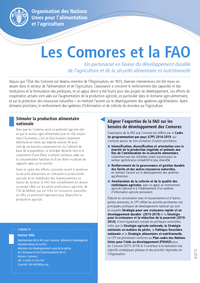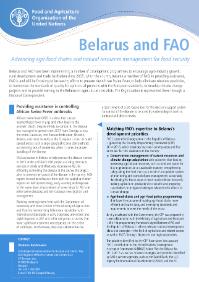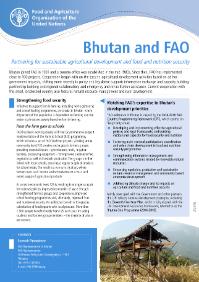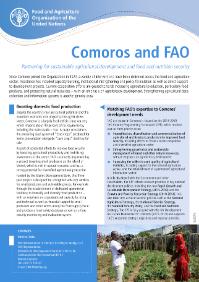Les Comores et la FAO
Depuis que l’État des Comores est devenu membre de l’Organisation, en 1977, diverses interventions ont été mises en oeuvre dans le secteur de l’alimentation et de l’agriculture. L’assistance a concerné le renforcement des capacités et des institutions et la formulation des politiques, et un appui direct a été fourni pour des projets de développement.








